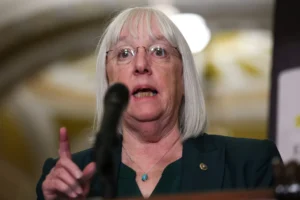The British prime minister announced expansive new restrictions on Saturday that effectively establish a national lockdown, and Greece and Austria increased coronavirus measures, joining France, Germany, Belgium and Ireland in shutting down large parts of their societies to try to keep their hospitals from being overwhelmed amid vast second-wave surges in coronavirus infections.
The surges, which have turned the Europe virus map almost a solid bright red, come as the United States has repeatedly set a record for daily infections.
That combination is largely responsible for driving the global caseload to once unimaginable highs. The global daily case count passed 500,000 for the first time on Wednesday, shot past 543,000 on Thursday and rose again on Friday to surpass 548,000, according to a New York Times database.
Prime Minister Boris Johnson announced new restrictions for England at a hastily called news conference after an emergency meeting of his cabinet. After weeks of resisting calls for a lockdown, he is shutting pubs, restaurants and most retail stores in England, starting Thursday until Dec. 2. Scotland, Wales and Northern Ireland had already instituted such restrictions.
Under the plans, people would be required to stay home unless their workplaces, such as factories or construction sites, need them. They would be allowed to go to school or college and leave home for a few other essential reasons, like buying food or seeking medical attention. But nonessential shops would be closed, people would be urged not to travel, except for business, and pubs and restaurants would only be allowed to serve take out food.
The British government’s scientific advisory panel, known as SAGE, estimated this month that England was seeing between 43,000 and 75,000 new infections a day, exceeding worst-case scenarios calculated just weeks ago. Hospital admissions are also running ahead of the worst-case scenario, the panel said.
On Friday, 1,489 patients were hospitalized in Britain with Covid-19 symptoms. Nearly 1,000 patients are in intensive care units, while 274 people died. The country has crossed the one million mark for total cases, according to a New York Times database, and its death toll from the virus is 58,925, one of the highest in Europe.
Earlier in the day, Prime Minister Kyriakos Mitsotakis of Greece unveiled a one-month plan that included a national curfew and mask mandate for indoors and outdoors starting Tuesday. Otherwise, the plan effectively divides the country in two, imposing broad restrictions in the higher-risk zone, which includes greater Athens and Thessaloniki, the second-largest city. Bars and restaurants will close except for delivery and takeout service along with cinemas, gyms and theatres. Schools are to remain open, as will retail stores and banks.
“I cannot shut my eyes to the harsh reality,” Mr. Mitsotakis said in a televised address, noting that the collective efforts to observe existing restrictions had been undermined by a few who had flouted them. Greece reported 2,056 new daily cases on Saturday, a record for the country.
Greece, which only recently started recovering from a decade-long financial crisis, is highly aware of the toll a full lockdown would exact. The economic effects of its first lockdown, imposed during the first wave of the pandemic in March, threw the country back into recession, with the contraction this year estimated to reach up to 10 percent of its gross domestic product. The government has said it plans to tap its cash reserves to prop up businesses and unemployed workers.
Austria’s chancellor, Sebastian Kurz, announced a curfew from 8 p.m. until 6 a.m. as of Tuesday, and is shutting restaurants to all but takeout service, Reuters reported. Stores, however, are to remain open.
Courtesy – The NewYork Times



























